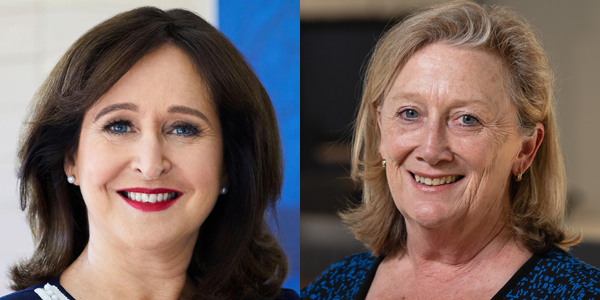How COVID has worsened women’s super outlook
Towards the end of the annual Women in Super Summit, which was this year open to the whole industry rather than only members, it was clear that the already-poor position women have faced with their super compared with men is getting worse in the current economic and medical crisis. Government policy and party politics are only making it worse, still.
The Summit, spread over three weeks ending August 31, concluded with a forceful presentation by Cate Wood, WIS chair, who said the Government should end “the reckless indulgence of backbench men seeking to undermine compulsory superannuation and condemn further generations of women to poverty and homelessness in retirement”. Whether or not they are men, which they are, they are certainly reckless, and they have no representation in Cabinet.
The two in question are backbenchers trying to make a name for themselves, embarrassing the treasurer, Josh Frydenberg, in the process, and probably their constituents. She was talking, of course, about the new writers to break onto Australia’s literary stage, Tim Wilson, a Victorian Liberal MP, and Andrew Bragg, a Victorian-born NSW Liberal senator, who both had books published during their recent attacks on the super system.
Wood said, after releasing a paper entitled “The Herstory of Superannuation” that it was time to say ‘no more’ to the likes of Andrew Bragg and Tim Wilson who were happy to take women back to the 1970s if not the 1950s as collateral damage in their “self-serving, ideological and short-sighted war” on super. She said: “Despite the successes of compulsory superannuation extending superannuation savings from 15 per cent of women in 1974… to over 75 per cent today – there is more to be done.”
The increase in the Superannuation Guarantee to 12 per cent was crucial for women, she said. “If the Government backs away from this commitment, yet again, they will be held to account for every woman struggling to pay rent or sleeping in a car in future decades.”
The impact of COVID, including the Government’s ‘Early Release of Superannuation Scheme’ (ERS), had disproportionally impacted women, widened the retirement gender gap and required specific gender analysis and recovery plans, she said. “Without preservation, compulsion and universality, the superannuation system will return to be a predominantly male privilege and women’s hard-fought improvements in economic security and independence in retirement over the past three decades will be lost… We call on the Government to work with us to improve outcomes for women.”
Earlier in the week, Debby Blakey, the chief executive of the big HESTA super fund, said: “As COVID continues to affect lives and livelihoods around the world, we can already see that the pandemic and its economic fallout are having a significant effect on gender equality.
“Despite having a diverse membership across the relatively strong health and community services sectors, latest APRA data shows HESTA is sixth in terms of funds that have received the most applications for ERS. More than 197,000 HESTA members have applied for over $1.58 billion of their super … “In applications made in the current financial year we’ve seen a significant impact on women’s account balances. Concerningly, a significant number of our female members also applied to access their super for a second time. 35 per cent of total applications from female HESTA members were repeat claims,” she said.
“The median account balance for female members who have accessed their super in the second round of the scheme is now just $17,454, a 35 per cent decrease, for HESTA (and probably most other big funds). The number of repeat applications is also highest for members aged between 30 and 39. “This means that there will be cohort of female HESTA members who have significantly reduced their account balances right at the point where they are most likely to take time out of the workforce to nurture children, exacerbating the gender super gap they already face”, Blakey said.











